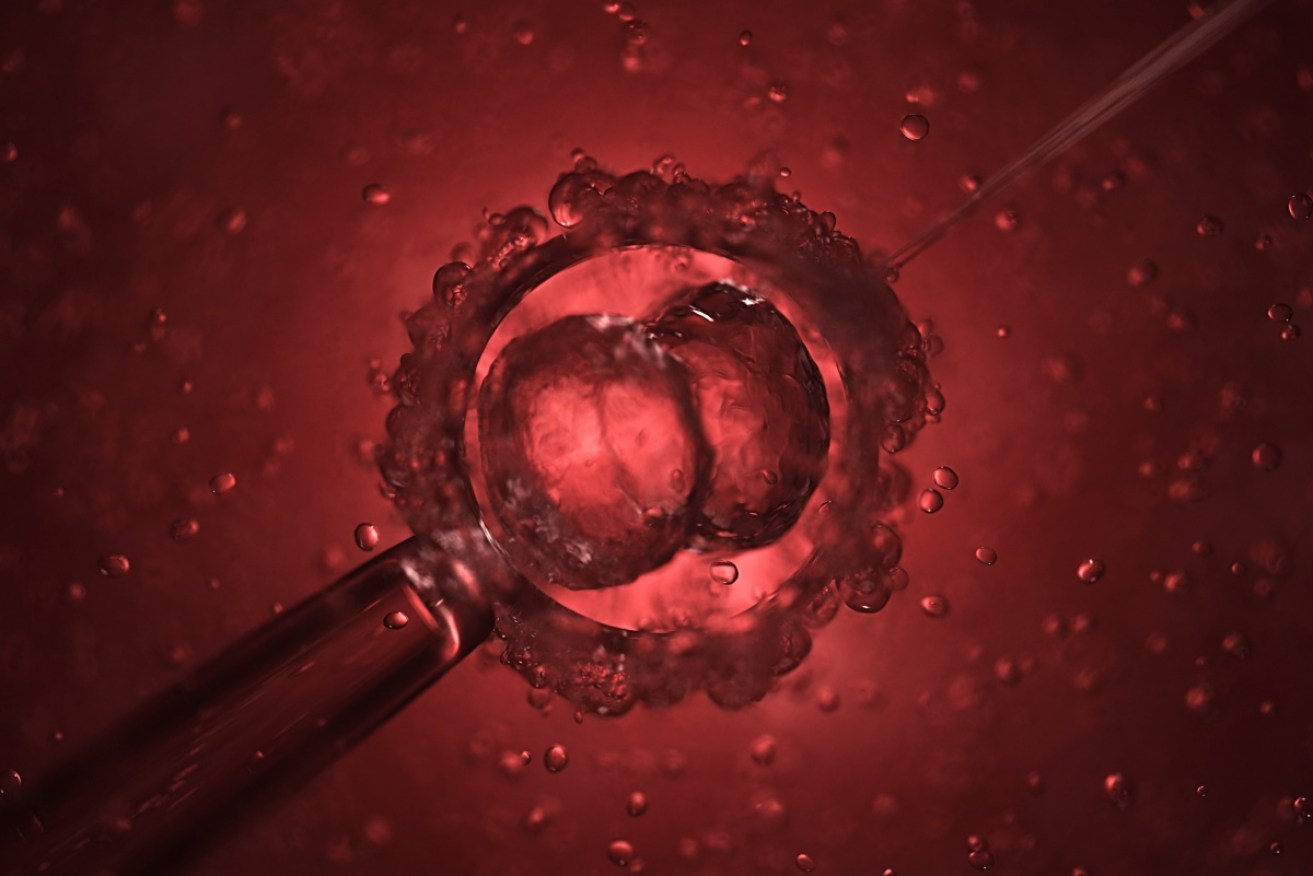Breakthrough in gene editing a step towards designer babies and ethical danger


New technology could lead to the modification of genes in a human embryo. Photo: Getty
Researchers are excited and “petrified” by the breakthrough in gene editing a human embryo, but the development has raised ethical questions about the potential for the technology to result in ‘designer babies’.
New research, published in the journal Nature, revealed scientists have for the first time used gene editing to prevent a hereditary heart condition in early-stage human embryos.
University of Adelaide’s Dr Hannah Brown – with research interests in genetics, IVF and developmental biology – said her greatest fear was if scientists create a genetically modified human baby before research determined it was safe to do so.
She said the science was “incredibly exciting” and at the same time “petrifying”.
“It’s a challenging one and it’s not going to go away. We need to start having these conversations now,” Dr Brown said.
The latest breakthrough could help reduce instances of the disease hypertrophic cardiomyopathy (HCM) in children conceived through IVF and pave the way towards eventual cures for some of the thousands of diseases caused by mutations in single genes.
HCM is an inherited disease of the heart muscle, and is the most common cause of sudden death in otherwise healthy young athletes, affecting about one in 500 people.
Those carrying the gene mutation have a 50 per cent chance of passing the gene on to their children. Correcting the mutation in embryos would prevent the disease from being passed on to future generations.
However, the research noted that further work was needed on genome editing processes before moving to clinical trials.
Designer babies
If gene editing can prevent certain types of health conditions, there are concerns about where this science could lead.
University of Sydney bioethicist Dr Tereza Hendl said the scope of the conditions enabling access to the technology should be clearly defined.
“As with any new technology there are ethical concerns,” she told The New Daily.

Ethical concerns emerge over designer babies. Photo: Getty
“We’re on an accelerated path to select and prevent certain traits and that might not necessarily be related to a disease. It may also lead to unintended consequences – for example, unintended mutations.
“What do we define as a ‘defect’ gene that’s worth preventing? Will we lose something important, like diversity in our society? Can we justify fixing some genes and where do we draw the line?”
Dr Hendl said that if such technology becomes widespread in the future, it could place pressure on parents to choose not to have children with certain conditions or a disability.
She said that while the best case scenario could involve the prevention of a life-threatening condition, the potential dangers include heightened discrimination and weakened healthcare supports for certain conditions.
“We should not be discriminating against traits that are not life-threatening – for example, because they are socially stigmatised,” Dr Hendl said.
“Presumably the technology would be available to those who can afford it, not by the poor or people in countries without an advanced healthcare system.
“If the technology evolves and becomes mainstream, parents could be under pressure to use it and those who refuse the technology might be stigmatised by society.”
We need to ask ourselves, do we want to go down that path?
Dr Brown agreed, saying the research opened up many ethical issues.
“Often if parents have had trouble starting a family, they can make decisions that they wouldn’t ordinarily make. They will go to extraordinary measures,” she said.
“This research does open up the possibility of modifying DNA, but can we make the baby we want? Should we? … Technology is moving incredibly quickly.
“The reality is, we don’t yet know the full extent of the dangers or the opportunities. But the risks are real.”
– with AAP








